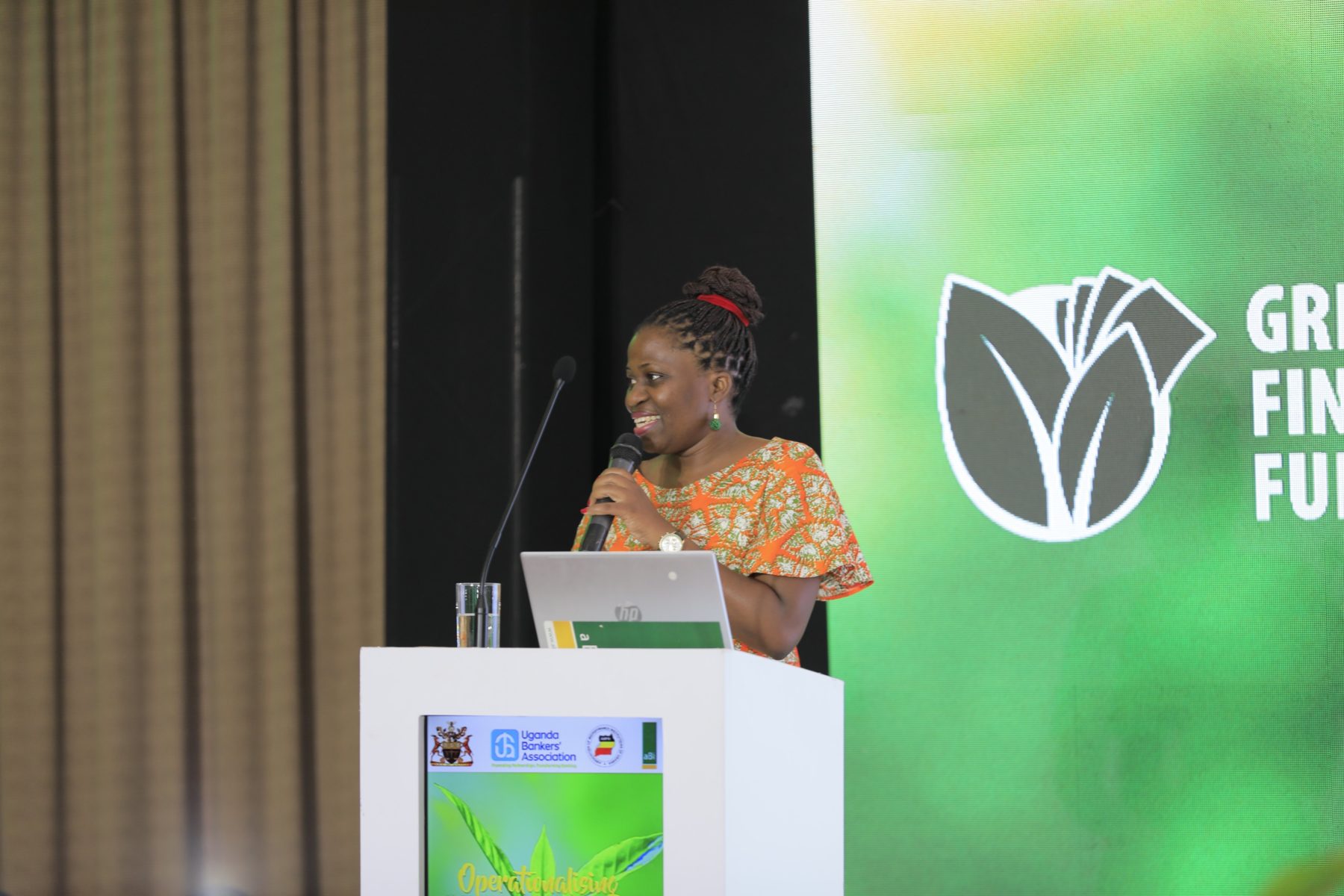
KAMPALA – The banking industry has been urged to incentivize the green financing agenda to help close the glaring gaps and drive sustainable agribusiness investments.
Ann Marie Mwaka, the Head of Business Development at aBi Finance says available data shows gaps in green finance availability, promotions, and business development services.
Ms. Mwaka was speaking during the aBi Finance Stakeholder Engagement and Green Finance Capacity Building Initiatives launch at the Kampala Serena Hotel on Tuesday, June 27.
“Climate change presents both a threat and an opportunity. With the right policies, standards, and partnerships, we can unlock the potential of green finance and create a sustainable future. Let’s work together to address capacity gaps and promote agribusiness,” Ms. Mwaka said.
She said that policies, environmental standards, and dedicated products like green loans are key to scaling up green finance flows.
“We must also focus on capacity-building through upskilling staff and upgrading infrastructure. Together, we can drive positive change,” she said telling bankers that “assessing capacity needs is crucial for promoting green financial interventions.
“From recruitment to job review, we must ensure that our staff have the knowledge and skills required for green growth. Let’s invest in training methodologies and peer-to-peer mentorship”.
The aBi Finance Stakeholder Engagement and Green Finance Capacity Building Initiatives seek to strengthen the capacity of lenders in Uganda to transition to ‘green financing.
Green financing is a financing model taking root worldwide with the aim of ensuring that all money loaned out, whether to the government or to the private sector, goes towards the protection of the environment or mitigation of the effects of climate change.
This is in line with the growing campaign for lenders and investors to have in place Environment and Social Governance (ESG) at all levels of investment decisions.
In December last year, aBi launched a 120-billion Shillings financing initiative through the local financial industry towards green financing, and currently, UGX27 billion has been loaned out.

aBi Finance Chief Executive Officer, Mona Muguma Ssebuliba says the initiatives will help the lenders develop or improve their policies, design appropriate products, and also improve the monitoring and reporting on the loan disbursements.
“Managing climate change requires that those tasked with Governance of our institutions, that is board and management MUST appreciate the climate change threats to business and start to act immediately. Once governance is aligned, then commit resources to develop and institutionalize clear Environmental and Socially inclusive policies, frameworks, and products, build capacity (for st`aff, systems, and infrastructure) and pursue partnerships to enable climate adaptation, mitigation, and biodiversity conservation investments,” she said.
aBi, an agriculture-focused lender, emphasizes environmental protection in all production processes, hence the decision to launch green finance.
It says that much as there is the willingness of financial institutions to finance green agribusiness investments evidenced by the growing demand for green lines of credit, there is still a lack of readiness to optimally operationalize green finance.
Most financial institutions have not yet mainstreamed ESG practices in various aspects of their operations, pertaining to; internal policies, frameworks and standards, structures, products, staffing, skilling, and reporting systems.
This lack of readiness limits the financial institution’s access to aBi’s green finance products.
Muguma says, however, that lenders must get ready to adapt to the changing environment and the need to prevent further losses.
“There is the willingness of financial institutions to finance green agribusiness investments evidenced by the growing demand for green lines of credit, there is still a lack of readiness to optimally operationalize green finance. Most of financial institutions have not yet mainstreamed ESG practices in various aspects of their operations, pertaining to; internal policies, frameworks and standards, structures, products, staffing, skilling, and reporting systems. This lack of readiness limits FIs’ access to aBi’s green finance products. Even those that have met the minimum threshold and got the lines of credit, have an abiding risk of greenwashing.
Greenwashing to the act of presenting an environmentally friendly image or promoting green initiatives but failing to back up the claims with substantial evidence,” she added.
Remarks from Mr. Felix Okoboi, Chair of the aBi Finance Board speech today
A Thread pic.twitter.com/4vYIUgKsLP
— Agricultural Business Initiative (aBi) (@aBiDevtFinance) June 27, 2023
The Green Finance Capacity Building Initiatives include developing a master environmental policy and supporting 40 financial institutions to customize, supporting them to develop, or upgrade their loan products to offer green finance, among others.
Speaking at the launch, Uganda Bankers Association Executive Director, Wilbrod Owor urged aBi to help the beneficiary financial institutions to prepare well and design appropriate products which would be attractive to the intended borrowers.
He said this will help avoid the shortcomings that befell the 200-billion-Shilling government rescue package to lift small businesses from the effects of Covid-19.
The process of managing s green fund by a bank or micro-lender will require the availability of adequate information, which will help, for example assessing the viability and eligibility of a project, tracing its application, and monitoring its performance, among others.
This, according to Jacqueline Mbabazi, the Chief Executive Officer at the Association of Microfinance Institutions of Uganda, will make the digitization of processes even more essential.
She says that while ESG is still optional in Uganda, there is a need for all lenders to have policies so that if or when it becomes compulsory, it will be easy for them to comply.
Bank of Uganda Executive Director for Supervision, Twinemanzi Tumubweine urged both the banks and investors not to look at climate financing/ESG as a regulatory issue, but as a business incentive.
He said that instead of looking for the profitability of investments, capital is now being targeted to areas where it will create more sustainability.
He added that green finance encourages transparency and accountability since through the integration of environmental, social, and governance (ESG) factors into investment decisions, investors can make informed choices that align with their values and contribute to sustainable development.
This integration enables the identification and mitigation of environmental risks, ensuring the long-term stability and resilience of financial markets.
Today, we're proud to host the aBi Finance Stakeholder Engagement and Green Finance Capacity Building Initiatives launch at the Kampala Serena Hotel. Together, we're shaping a sustainable future for Uganda. Follow us for live updates and insights from the event. #aBiFinanceLaunch pic.twitter.com/c0XcRIgw6F
— Agricultural Business Initiative (aBi) (@aBiDevtFinance) June 27, 2023
BoU is collaborating with other government agencies, regulators, and financial institutions, as well as local and international development partners with the aim of unlocking the full potential of green finance.
“We are fast-tracking developing and implementation of enabling policy frameworks and incentives, robust regulatory measures, such as climate-related disclosures, carbon pricing mechanisms, and green finance standards sustainable investing,” said Deputy Governor Michael Atingi-Ego in a statement in a statement read by Tumubweine.
He said the government is working with other agencies to ensure that are adequate frameworks for enforcing green financing because it will also help in enhancing preventive measures against climate disasters instead of reacting to emergencies.





